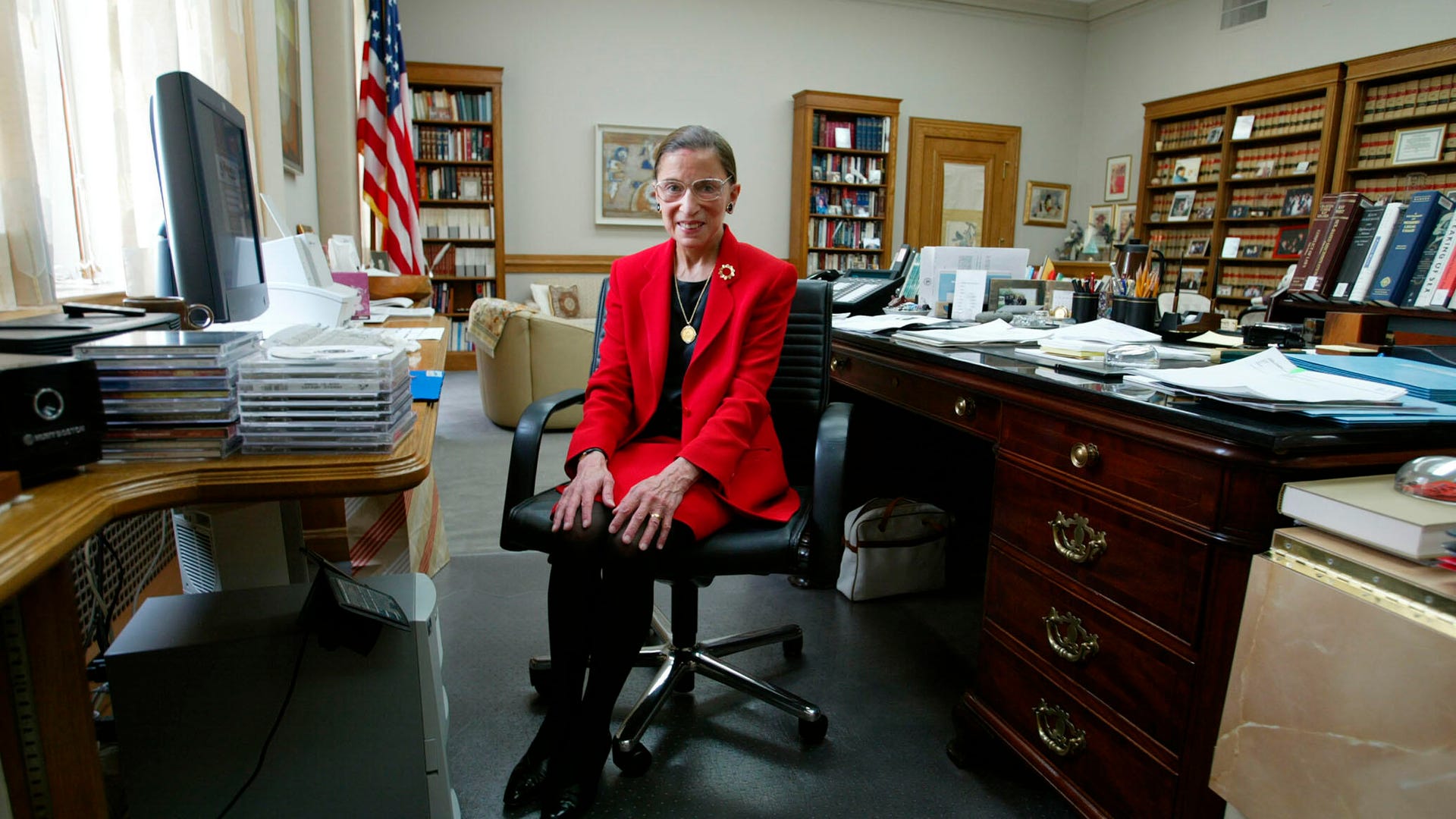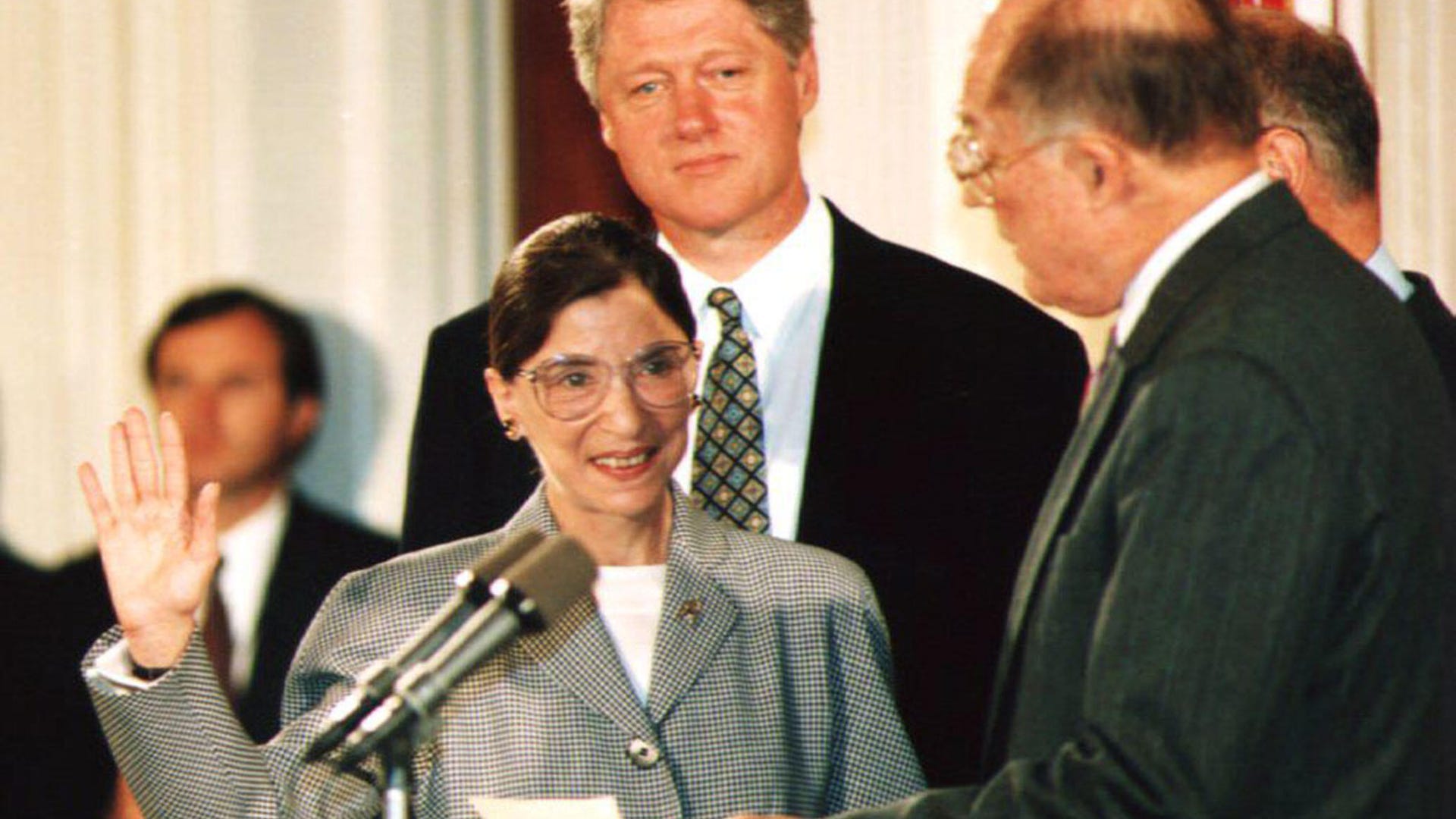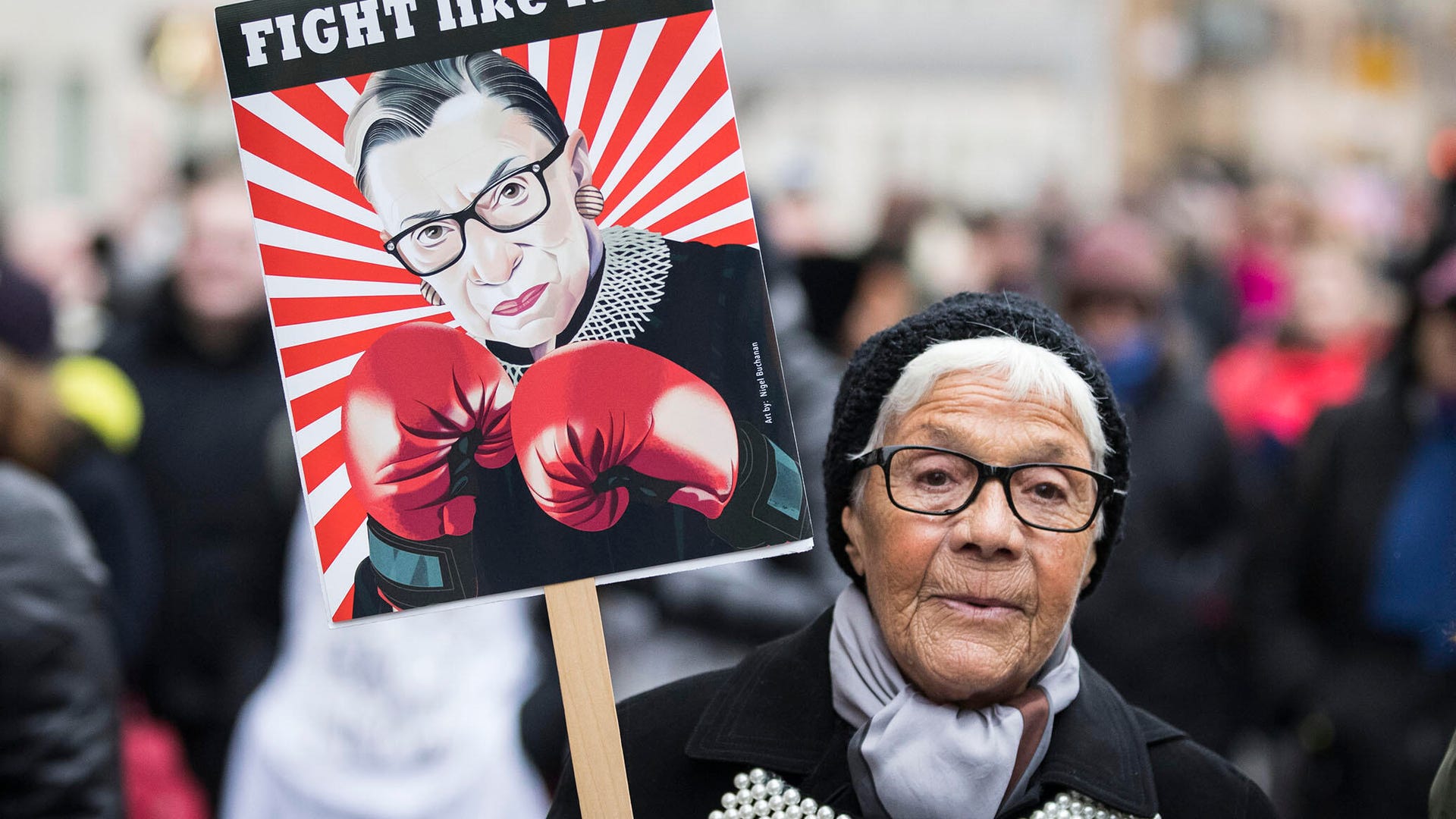Join or Sign In
Sign in to customize your TV listings
By joining TV Guide, you agree to our Terms of Use and acknowledge the data practices in our Privacy Policy.
Ruth Bader Ginsburg, Liberal Bastion of the Supreme Court, Dead at 87
'My most fervent wish is that I will not be replaced until a new president is installed'
Supreme Court Justice Ruth Bader Ginsburg has died at the age of 87. The Supreme Court announced her death on Friday, citing the cause as complications from cancer.
Ginsburg was the second woman to serve on the Supreme Court, and she was best known as a champion of women's rights in the 1970s and throughout her 27 years on the nation's highest court. She was first diagnosed with cancer in 1999 and underwent surgery, chemotherapy, and radiation treatment. She was rediagnosed with cancer in 2009 and 2018.
In a statement in July, Ginsburg gave an update on her health, writing, "My most recent scan on July 7 indicated significant reduction of the liver lesions and no new disease. I am tolerating chemotherapy well and am encouraged by the success of my current treatment. I will continue bi-weekly chemotherapy to keep my cancer at bay, and am able to maintain an active daily routine. Throughout, I have kept up with opinion writing and all other Court work. I have often said I would remain a member of the Court as long as I can do the job full steam. I remain fully able to do that."

U.S. Supreme Court Justice Ruth Bader Ginsburg sits in her chambers at the Supreme Court on Aug. 7, 2002 in Washington, DC.
David Hume Kennerly/Getty ImagesRuth Bader Ginsburg was born Joan Ruth Bader in 1993 in Brooklyn, New York. She attended Cornell University for her undergraduate degree and studied law at Harvard Law School and Columbia Law School. She started her law career with a clerkship for Judge Edmund Louis Palmieri of the U.S. District Court for the Southern District of New York and later took a job as a professor at Rutgers Law School.
Ginsburg co-founded the ACLU's Women's Rights Project in 1972, and she argued six gender discrimination cases before the Supreme Court between 1973 and 1976. She won five. These cases varied in subject, from arguing that the Equal Protection Clause of the Fourteenth Amendment should be extended to women, to arguing against laws that set different minimum drinking ages for men and women.
In 1993 she was nominated by President Bill Clinton to the Supreme Court, where she became known for her sharp, liberal dissents and earned the nickname "The Notorious R.B.G." While on the bench, she supported abortion rights, striking down partial-birth laws and laws regulating abortion providers. She also continued her fight against gender discrimination, famously calling for legislation to undo the ruling of Ledbetter v. Goodyear in her dissent — a call that was answered in 2009 with the Lilly Ledbetter Fair Pay Act under President Barack Obama.

U.S. Supreme Court Chief Justice William Rehnquist administers the oath of office to newly-appointed Supreme Court Justice Ruth Bader Ginsburg, as U.S. President Bill Clinton looks on, on Aug. 10, 1993.
Kort Duce/AFP via Getty ImagesHer battle for equality didn't stop there. Speaking at the 10th Circuit Bench & Bar Conference in 2012 about the topic of women on the Supreme Court, Ginsburg said, "So now the perception is, yes, women are here to stay. And when I'm sometimes asked 'When will there be enough [women on the Supreme Court]?' and I say 'When there are nine,' people are shocked. But there'd been nine men, and nobody's ever raised a question about that."
In recent years, her notoriety extended to pop culture; her quotes about equality have been embroidered on pillows and stamped on T-shirts, and even her collars have become feminist fashion staple-pieces. Ginsburg also has been the subject of two popular films. On the Basis of Sex was a 2018 biographical legal drama in which Felicity Jones played Ginsburg during the early and pivotal years of her law career. The second film, RBG was a 2018 documentary following a much broader scope of Ginsburg's life.

A marcher holds a sign depicting Supreme Court Justice Ruth Bader Ginsburg as she walks past Trump International Tower in Manhattan during the Woman's March on Jan. 18, 2020.
Ira L. Black/Corbis via Getty ImagesGinsburg's true legacy, however, might be an entire generation of women she inspired to find their voices and fight for equality. As mourners' words pour in from across the country, people of all ages, genders, races, and beliefs remember her as a cherished feminist icon who left a significant mark on this country.
Ginsburg's husband Martin Ginsburg preceded her in death, having died of complications from cancer in June of 2010. She is survived by her daughter Jane C. Ginsburg, who is a professor at Columbia Law School, her son James Steven Ginsburg, who is the founder and president of a classical music recording company, and several grandchildren.
According to NPR, Ginsburg dictated a statement to her granddaughter, Clara Spera, just days before her death: "My most fervent wish is that I will not be replaced until a new president is installed."
